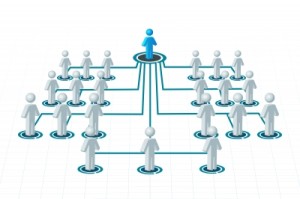 Steve Sipress
Head Rhino & Chief Strategist
Steve Sipress
Head Rhino & Chief Strategist
Dan Sullivan: Capitalism And Cooperation

Image courtesy of digitalart/FreeDigitalPhotos.net
A number of times over the past few years, I’ve heard commentators speculate that we’re facing the end of capitalism.
That’s impossible.
The Nobel Prize-winning Austrian economist Friedrich Hayek said the tragedy of capitalism is that it was named by its enemies. Capitalism isn’t actually about capital, it’s about cooperation — an infinitely expanding system of trading among strangers.
There’s an illustrative parable about a trading ship from Europe that happens upon a new country. As the Europeans make their way ashore and meet the indigenous people, they notice the natives are sitting on huge deposits of precious silver. Meanwhile, the indigenous people are quite attracted to the axes they see the Europeans using to cut down trees.
Eventually, both sides negotiate, and they make a trade. As the Europeans are leaving, they say to themselves, “Can you believe it? We gave them 20 axes and got 20 tons of silver!” At the same time, the indigenous people are saying to themselves, “Can you believe it? We got all these great axes, and all they wanted was a bunch of rocks!”
The moral of the story is that both sides prospered from the exchange. Several multipliers were created as a result of this cooperation:
- Leverage — The thing each side traded was easy for them.
- Wealth — Now they both have silver and axes.
- Productivity — After the first transaction, the next will be much simpler.
- A marketplace — Each side will take what they received and make trades with other parties.
That’s the part a lot of people don’t understand. You can call it “capitalism” or whatever you like, but it keeps coming back to the level of the individual: No matter what happens to the larger systems, structures, and institutions that support it, people will keep finding ways to trade because it makes them better off, and most healthy human beings will naturally seek out and create things that improve their lives.
The trading process starts with someone getting an idea of something new, better, or different purely for their own personal gain. Then the next thought goes something like, “Who’s going to pay for this?”
To be successful at this process, you have to get out of your own head and get into someone else’s. That’s quite a remarkable thing, because we’re the only species that does it. And we do it unequally: Some humans are very good at it, and some aren’t good at it at all. In this one act, you combine selfishness and altruism — or you could call it “empathy,” because to make it work you’ve got to be able to see things from somebody else’s viewpoint.
You create capital — surplus time and surplus wealth — as you get better at it. But if you get fixated on the surplus, you lose touch with what got the whole process started: the first creative thought, then creative communication, then a creative exchange.
At Strategic Coach, what we focus on in our entrepreneur coaching with business owners is putting all the emphasis where it starts — with the original value creation proposition, “Who will this benefit most?” And the business coaching trains them to stay there, so they don’t get taken up with the by-products of what they’re doing. Those by-products will come, and they’re a lovely reward, but cooperating with other individuals is where the real value is. And that fundamental activity remains, even when the systems of measurement or support go through fluctuations.
As long as individuals are meeting their needs by trading with one another, we will have capitalism — and human progress.

Recent Comments